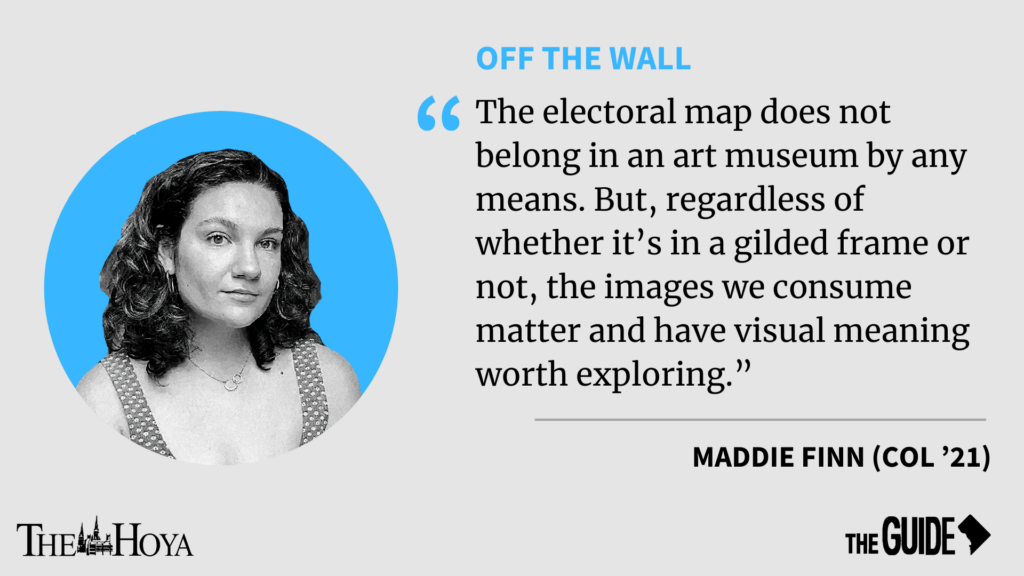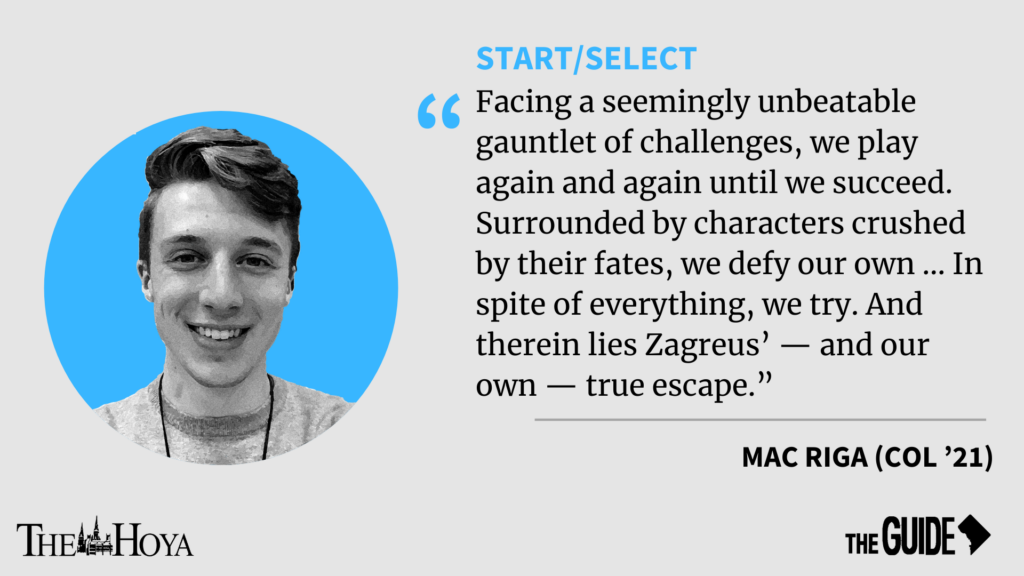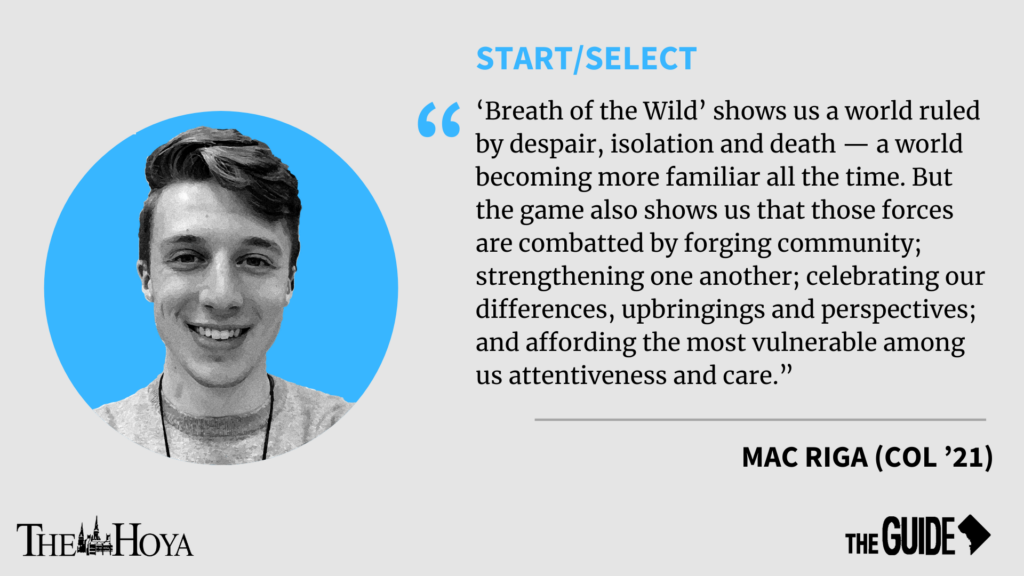The drastic life changes brought about by the COVID-19 pandemic have engendered many societal phenomena, though few have been more inspiring and reassuring to me than the effort from artists and artistic organizations to make content more easily accessible.
From streaming content being provided for free to dance lessons offered remotely to anticipated movie releases online, the artistic community has come together to encourage audiences to stay home and combat the virus’ spread. Even one of my professors and her husband, a professional chef, have started a delightful series of home cooking videos.
These changes have helped kick-start a massive democratization of art. In a world where ever-rising prices of admission to theaters and the like and scarcity of access to new content threaten to turn art into a commodity of the upper class, these steps toward accessibility — even if only temporary — are remarkably heartening.
Video games, as a medium of entertainment, have ranked consistently low on the accessibility scale. Games are sold at a reliably high price point. The typical PlayStation game normally costs $60, not to mention the hundreds of dollars required to purchase a console on which to play it. Along with these costs, games require a monitor or television, access to reliable electricity and, increasingly essential in recent years, a stable internet connection.
Once the technical barriers to entry have been overcome, there is the question of “video game literacy,” the degree of commonality across game controls and design that makes gaming harder to break into for new players.
Once someone makes the considerable effort to enter the gaming world, it is my belief that game designers should try their hardest to be accessible and intelligible in their design. For this reason, I can think of no greater crime in game design than the moralizing system of alternate endings found in games like 2012’s “Dishonored.”
The first-person stealth game puts the player in the shoes of a royal bodyguard-turned-assassin named Corvo who seeks revenge for his murdered queen and attempts to rescue the captured princess. To this end, the game uses an overarching, hidden mechanism called Chaos, accumulation of which is to be avoided. Chaos increases based on a number of factors, but it chiefly depends on the number of enemies Corvo kills on any level. Kill 20% of the game’s enemies and you get the “Medium Chaos ending,” 50% and you get the “High Chaos ending.” These endings cause harder late-game play as well as a generally more negative ending to the story, even outright castigation of the player by allied characters.
At face value, this doesn’t seem like a terrible mechanism. A game that places value on human life and dissuades excessive kills is a positive, especially juxtaposed with wildly popular and deeply cynical game franchises like “Call of Duty” and “Grand Theft Auto” that, while meritable in their own ways, tend to present violence in a disquietingly comfortable way.
In “Dishonored,” however, the Chaos feature is deeply hypocritical. A vast majority of the powers, level design and story design are centered around Corvo killing his opponents. Anyone who’s attempted a “Low Chaos” run will tell you how difficult and oblique the game is when played without killing. The game presents the player with a game play method driven by defeating enemies, yet it chastises the player for killing too many enemies by altering the ending of the game. This feature not only makes “Dishonored” seem hostile to the player, but also ultimately makes the game more inaccessible to anyone trying to glean messages, themes or artistic value from the game writ large.
Even so, it is not impossible for games with multiple potential outcomes to be implemented effectively. While in “Dishonored” this feature makes the game less approachable, other games use the same tactic in ways that contribute to the work as a whole. Games like “Undertale” and “The Stanley Parable” found ways to weave multiple endings seamlessly into the very core of their game mechanics. Players are not punished for playing like most people would, but rather are rewarded for trying novel, inventive ways of beating the game.
Being given a bad ending for using game mechanics normally, like in “Dishonored,” is a frustrating, punitive experience. Meanwhile, in “Undertale,” the only way to achieve the “worst” ending is by abusing game mechanics and playing the game in unintended ways — which is an exploratory, rewarding experience regardless of the curveballs thrown by the game itself.
Games shouldn’t punish players for using the systems the game provides them with in the first place. Games shouldn’t hide content, themes and messages behind obscure, joyless and unnecessarily difficult ways of playing the game.
In a medium already so permeated with inaccessibility, game designers should take care to make the value of their work more immediately accessible to the player. And for all of our sakes, if game designers are going to implement multiple endings to their games, they should keep in mind that self-defeating formats like “Dishonored” make the player feel just that.
Mac Riga is a junior in the College. START/SELECT will appear in print and online every other week.






















Person with brain • Jul 12, 2021 at 7:22 pm
This might actually be the least considered review of any game that I have ever read in my life.
When you read a book, do you want the author to use smaller words, simpler themes and less techniques to make the book ‘more accessible?’
Perhaps so someone’s intellectually challenged pre-pubescent son can understand? I’m sorry to break it to you, but the purpose of art is not to be accessible to all.
Asking a game developed to make their games easier in the name of accessibility is entirely asinine. There are difficulty modes for a reason.
I would like to point out the game really is not that difficult… at all. I decided to do a run-through last night around 9pm on Very Hard difficulty and I’m sorry to break it to you but it’s not like I was glitching through walls and double jump blinking across the map to comfortably finish in a few hours. I could give the game to my 12 year old brother and I guarantee you he’d manage a stealth run without much trouble. I could probably give this game to my girlfriend who’s never played a game in her life and she’d probably figure it out. The systems are highly intuitive. You don’t want to be seen, stay out of sight, blink around. You want to know where enemies are looking, use the power that gives you wall hacks and visualises enemy awareness. You can even stare enemies right in the face around corners and they won’t see you.
I don’t see why the endings of things should be given instead of earnt. When I read Ulysses, I don’t just skip to the ending in hopes of gleaning the true artistic essence of the work. You have to experience the work in its entirety to understand and appreciate it. Criticising a work for ‘gatekeeping’ for presenting multiple ways of completing a game with different outcomes is… juvenile.
Do you think that slicing through every guard, every civilian, every story target you see should not affect the tone of the story so that less skilled players don’t miss an ending?
Hilarious.
roelani • Nov 4, 2020 at 8:36 pm
Came here trying to find in-universe swear words to use in fanfic, found clickbait article, faith in humanity restored by level-headed comments.
Thanks, google.
nuym • Jul 5, 2020 at 9:21 am
This makes no sense. You baited the readers with the word “accessibility” in the title, but this is actually just a complaint about how hard the game is. Completing the story on low chaos in both Dishonored and Dishonored 2 is fairly reasonable. I myself messed up my very first playthrough of the first game because I was not used to the stealth mechanics, intricate level design and high agency. But that experience helped me build so much skill and made me think outside of the box. Also, comparing Dishonored with The Stanley Parable or Undertale is extremely unjustified, since this is a first person stealth game with many very different game mechanics that you cannot find in either of those two! Just admit you’re bad at the game and move on, no need to criticise an obviously great game.
Richie • Jun 11, 2020 at 6:46 am
This is stupid. It’s their art. They shouldn’t cater to anyone but their own vision. That’s why there are a million developers out there. And I hope they don’t listen to pansies like you who need they’re hand held in every game. Dishonored is so underated and an amazing game. You should play dark souls so you never pick up a controller again or stick to cod. Games are art and your not going to like every single one. Just like any other platform of art. But you can’t shit on someone’s vision and say cater to everyone. That would make everything so grey and unoriginal. Nice try though game journalism.
@lex • Apr 29, 2020 at 4:19 am
Let’s cut the crap for a moment, this game is for an adult audience! People are more than capable of making up their own minds.
Dishonored is an excellent game and was acclaimed at its release for all its charm.
Nothing is imposed on you in the game, on the contrary, you are free to make your own choices which will naturally have an impact on the story.
Accessibility doesn’t mean anything, personally I’m visually impaired and I love Dishonored. Your article is totally at the expense of the story, one even wonders if you played the game.
Davod • Apr 18, 2020 at 9:31 pm
In order to get the good ending you must leave 80% of the enemies alive. The powers available to you are dark vision, blink, possession, bend time, devouring swarm, wind blast, vitality, bloodthirsty, agility and shadow kill. Of those only devouring swarm, bloodthirsty and shadow kill have no uses outside of death. Each power is given a very clear explanation of its uses And even a fairly lengthy strategic tip. You are given sleep darts that can work instantly the power to knock people off their feet with the wave of a hand, teleport out of sight, see through walls jump incredible heights. The most important all powerful ability of all is the save and load feature, you can save your spot every second and go back to ensure you did the very best you could with no penalties. I’d say you are very much well equipped for saving the princess while managing to kill less than 20% of the population. Despite this I know it feels bad to get the “bad” ending. That’s what I did before I understand what chaos really did but as bad as the ending was it felt real. You as a father couldn’t save the world but through all your efforts you managed to protect what you love and she loved you for it despite your flaws. That is what mattered most. Even still I went back and secured the good ending it was harder but not so much harder that I didn’t beat it faster the second time given my self imposed restrictions. As unrealistic as it was comparatively I did want the best for Emily and that meant saving as many of her subjects as possible and it made me even happier. I’ll be honest I don’t think you even played the game but either way if you feel unsatisfied with the game I recommend using this real world quarantine to revisit the fictional one and do things right by Emily.